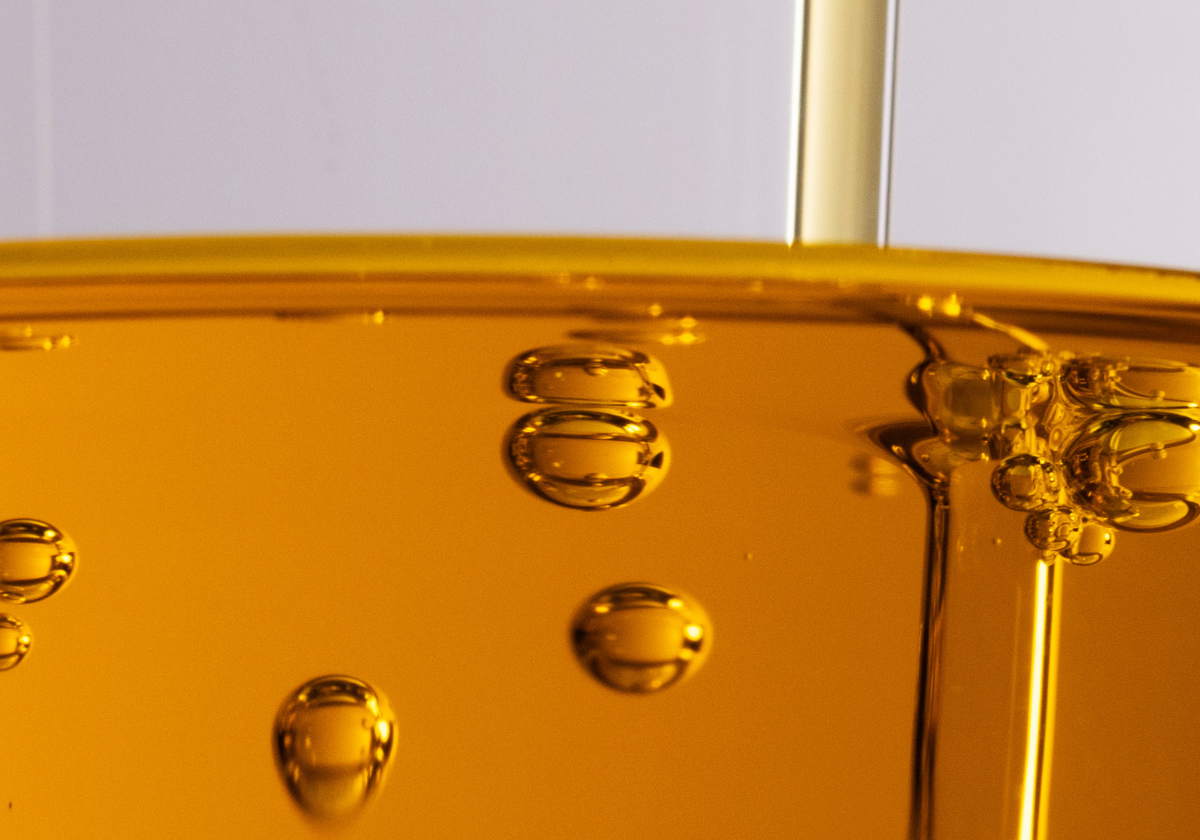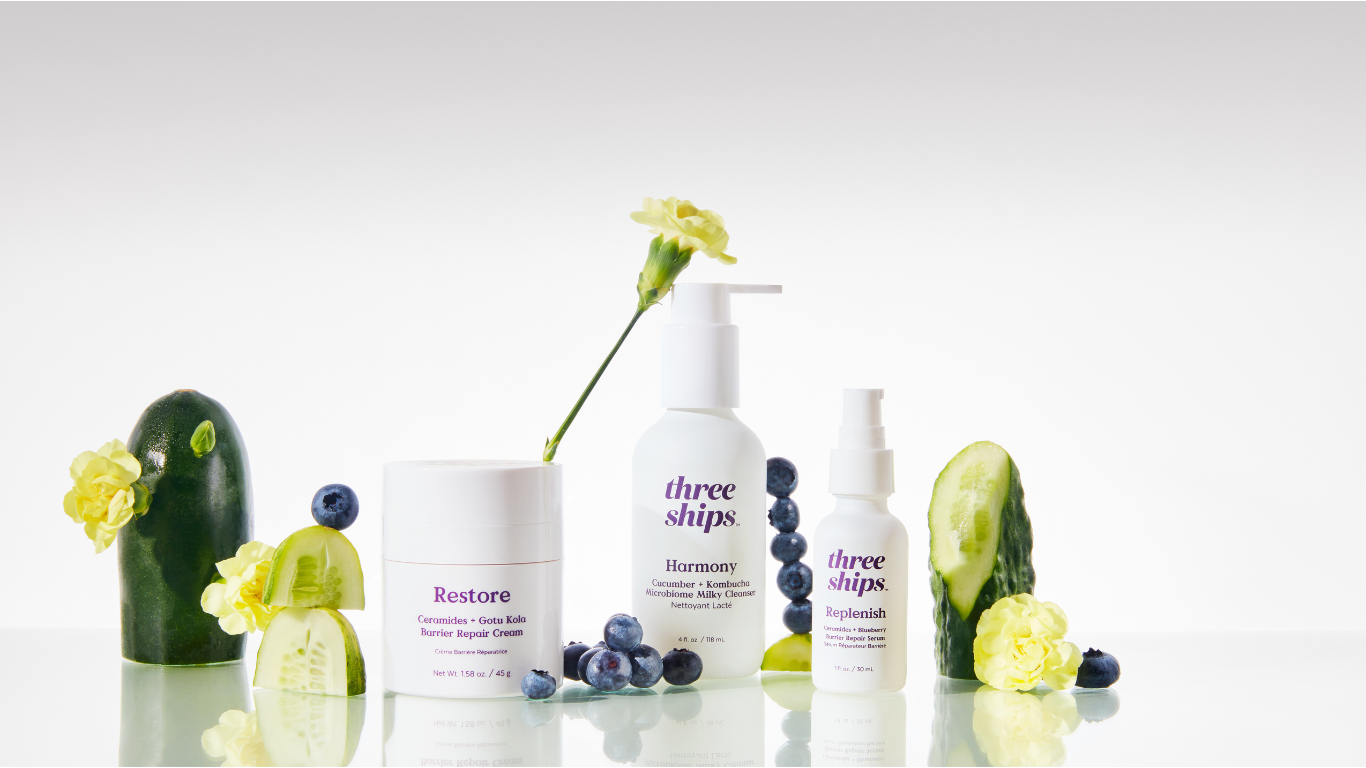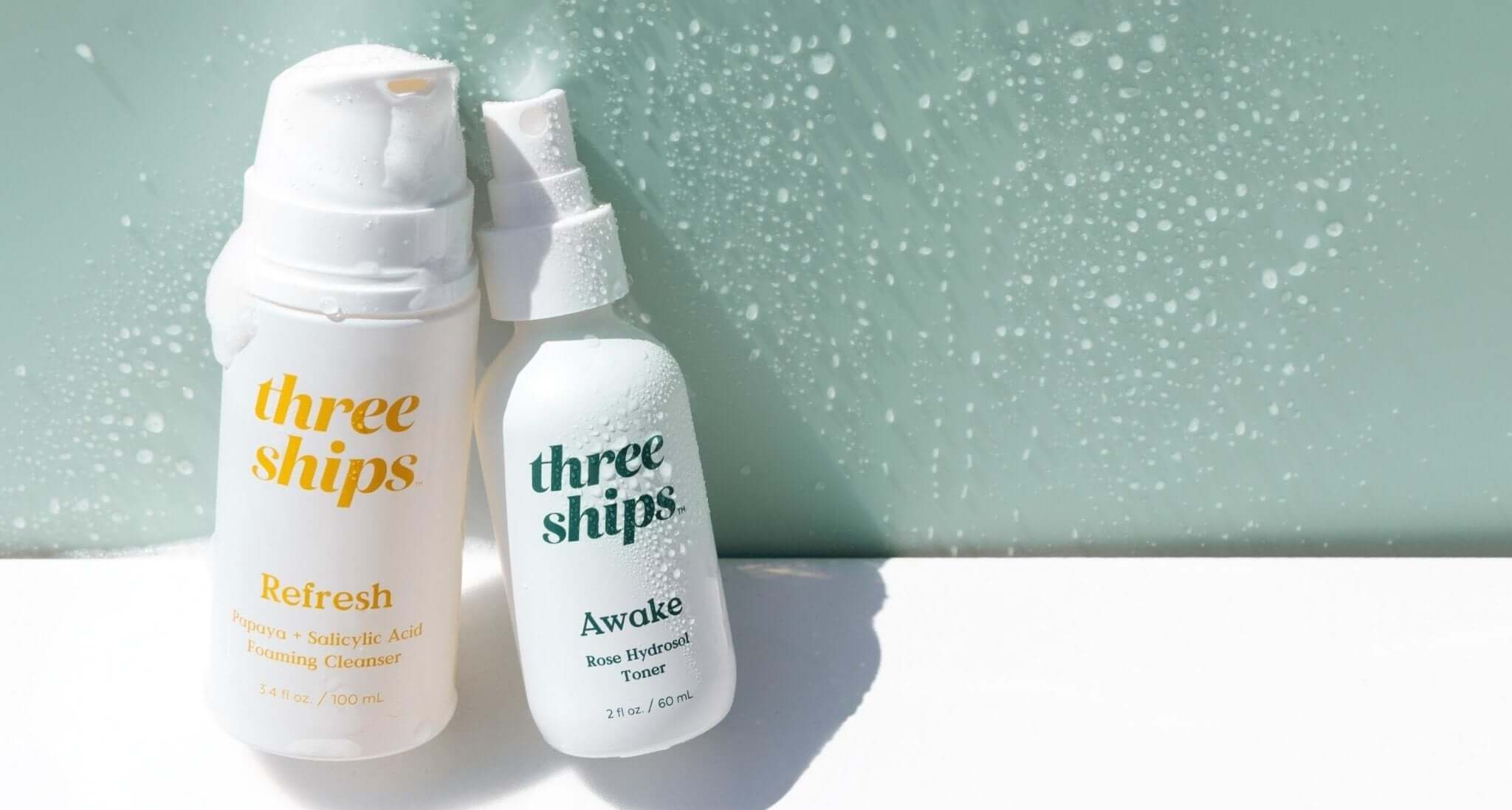Toner vs. Serum: Understanding The Difference

Beauty is ever-changing, evolving solely from cleansers and moisturizers to toners, serums, and exfoliators. It's challenging to know which products are necessary to achieve your skin goals and which are just pretty packaging. If you use one, do you need the other?
In this article, we will unravel the differences between two crucial skincare steps: toner and serum.
What Is The Difference Between Toner & Serum?
The telltale visual difference between toner and serum is consistency. Toner is a liquid, while serum is a thicker, gel or oil-like consistency. Here are a few more differences between a toner and serum:
- Toner balances the skin’s pH, while serums help support specific skin concerns, such as dry patches or fine lines.
- Serums contain highly concentrated active ingredients, while toners are exfoliants and contain skin-balancing ingredients.
- Toners are sold in larger bottles, while serums are available in small bottles.
So, while each comes with its own unique benefits, what are their differences?
What Is Toner?
Toners are a liquid skincare product formulated to cleanse and exfoliate the skin, restoring it to its natural pH balance. After washing your face, apply toner to refresh, protect, and moisturize the skin. Toners do not strip your skin of natural oils, which is why they are great for people with sensitive skin. Toner is available as a pour-out liquid that can be used with cotton pads, or as a spray mist.
Generally, people with oily and acne-prone skin types use toners, but they can be used by all skin types. It is also perfect for wiping away makeup that gets left behind after cleansing.
Toner formulas benefit your skin in a few ways.
- Primarily, toners balance your skin's pH after cleansing, and it works well for dry, uncomfortable, irritated skin.
- Provides gentle hydration and is perfect for combination, oily, and dehydrated skin types.
- It helps treat blackheads and blemishes and lessens the visibility of pores through exfoliation.
Use a toner after cleansing your skin and before using a serum. There are a variety of toners with different hero ingredients — check the label and choose the one that’s best suited for your skin type and skin goals.
Do You Wash Toner Off?
After cleansing morning and evening, shake and spritz over the entire face. Toner formulas contain ingredients that continue working well after their application, so they don’t need to wash away.
Does Toner Tighten Your Skin?
Clean, clear skin begins with a thorough cleanse and a quality toner. Toner wipes away residual dirt, oil, and makeup from the skin that the cleanser leaves behind.
Read the toner label to choose one that contains oil-fighting and pore cleansing ingredients. Not all toners are created equal, and each formula serves a different purpose.
What Benefits of Toners?
Toners benefit your skin in many ways.
- Restores pH level in the skin
- Moisturizes
- Reduces the appearance of large pores
- Refreshes the skin
- Acts as a base to better absorb products that are applied after
How To Choose a Toner?
Choosing a toner is dependent on your skin type. Always choose alcohol-free toner because alcohol dries the skin and strips it of its natural oils. Here’s what to consider:
- Oily Skin -- Look for a toner explicitly designed for oily skin. Choose oil-free formulas or those containing tea tree oil, lavender hydrosol, or AHAs.
- Dry Skin – Hydrating toners containing hyaluronic acid, vitamin E, or glycerin are excellent choices for people with dry skin.
- Acne-Prone Skin -- Oil-free toners formulated with salicylic acid are beneficial for acne-prone skin types.
- Combination Skin -- People with combination skin need to combat oil while still hydrating their skin. Toners containing rose water, vitamin E, and vitamin C are good choices.
- Sensitive Skin – Sensitive skin types need soothing toners containing aloe vera, chamomile, and rose water. Always steer clear of toners containing alcohol and fragrances.
What Is Serum?
Serum formulas contain tiny molecules designed to penetrate the skin with highly-concentrated, active ingredients, and these ingredients are skin-specific and intended to treat a targeted skin issue.
There are many different serums available, from hyperpigmentation treatments to skin brightening.
Serum is usually thicker than toner, yet thinner than moisturizing cream in the form of a gel or oil. Water-based, gel-like serum comes third in your skincare regimen, after toner, and before moisturizer. Oil-based serums, also known as facial oils, come last after moisturizer. Always apply serum to a clean face and gently massage it into the skin so that it penetrates deep into the epidermis.
How Long Do You Leave Serum on Your Skin?
Allow serum to remain on your face all day until you remove your makeup. The potent ingredients target specific skin concerns and work diligently to correct them while you go about your day or as you sleep.
Does Serum Tighten Your Skin?
It depends on the skin concern you decide to treat. There are many serums available, and each targets different skin concerns. There are plenty of serums formulated with skin firming ingredients and hydrating serums on the market today, containing ingredients such as hyaluronic acid.
What Are The Benefits of Serum?
Serums are highly concentrated liquid skin treatments. Serums serve these purposes:
- Target a specific skin concern such as wrinkles, hyperpigmentation, or dryness.
- Provide deep hydration and conditioning
- Provide visible results thanks to formulas with highly-concentrated active ingredients such as vitamins, minerals, herbal extracts, chemical exfoliants, and humectants.
How To Choose a Serum?
First, know your skin type and which skin concern you’d like to address. With so many serums available on the market, make sure to read the labels to choose the perfect one for your skin type.
- Hydrating Serum - Good for all skin types
- Brightening Serums - Good for people with dull skin, hyperpigmentation, and dark spots
- Firming Serums - Good for all skin types
- Clarifying Serums - Good for those who break out, have oily skin, or clogged pores
- Calming Serums - Good for sensitive skin types and redness
Do You Have To Use Both a Serum and Toner?
You can definitely use both a serum and a toner, since they are different skincare steps that serve different purposes.
If you have a specific skin concern that you need to address, such as fine lines and wrinkles, dark spots, acne, or dull skin, then incorporating a serum into your skincare routine may be a good choice for you. You can opt for a serum that can help address your specific skin concerns — and the same goes for a toner.
Do You Have To Use Toner?
Toner isn’t necessary for everyone, but it is beneficial to find one that suits your skin type if you choose to use one. Knowing which ingredients to look for helps you know which toner to choose and which to avoid.
For example, lavender balances pH and controls oil, while witch hazel is rich in antioxidants and reduces redness and puffiness. Glycerin is another beneficial ingredient in toner that plumps and balances the skin.
Three Ships Beauty Calm Lavender Hydrosol Toner contains lavender hydrosol, witch hazel, and glycerin to even out skin tone and minimize the appearance of pores. This toner is alcohol-free and 100% plant-derived, so it's a quality toner you can trust.
Bottom Line
Toner and serum are two valuable skincare products that serve your skin differently. Toner cleanses and exfoliates, while serum contains concentrated active ingredients that penetrate the skin to provide skin-specific targeted treatments.
Ready to build your skincare routine? Take our Skin Quiz and let’s build your personalized skin regimen.
Sources:
Face Toner for Every Skin Type: 6 Uses for Face Toner - 2022 - MasterClass
Skin serum: What it can and can't do | Harvard Health
Do You Really Need a Skin Care Routine? | Northwestern Medicine
0 comments





